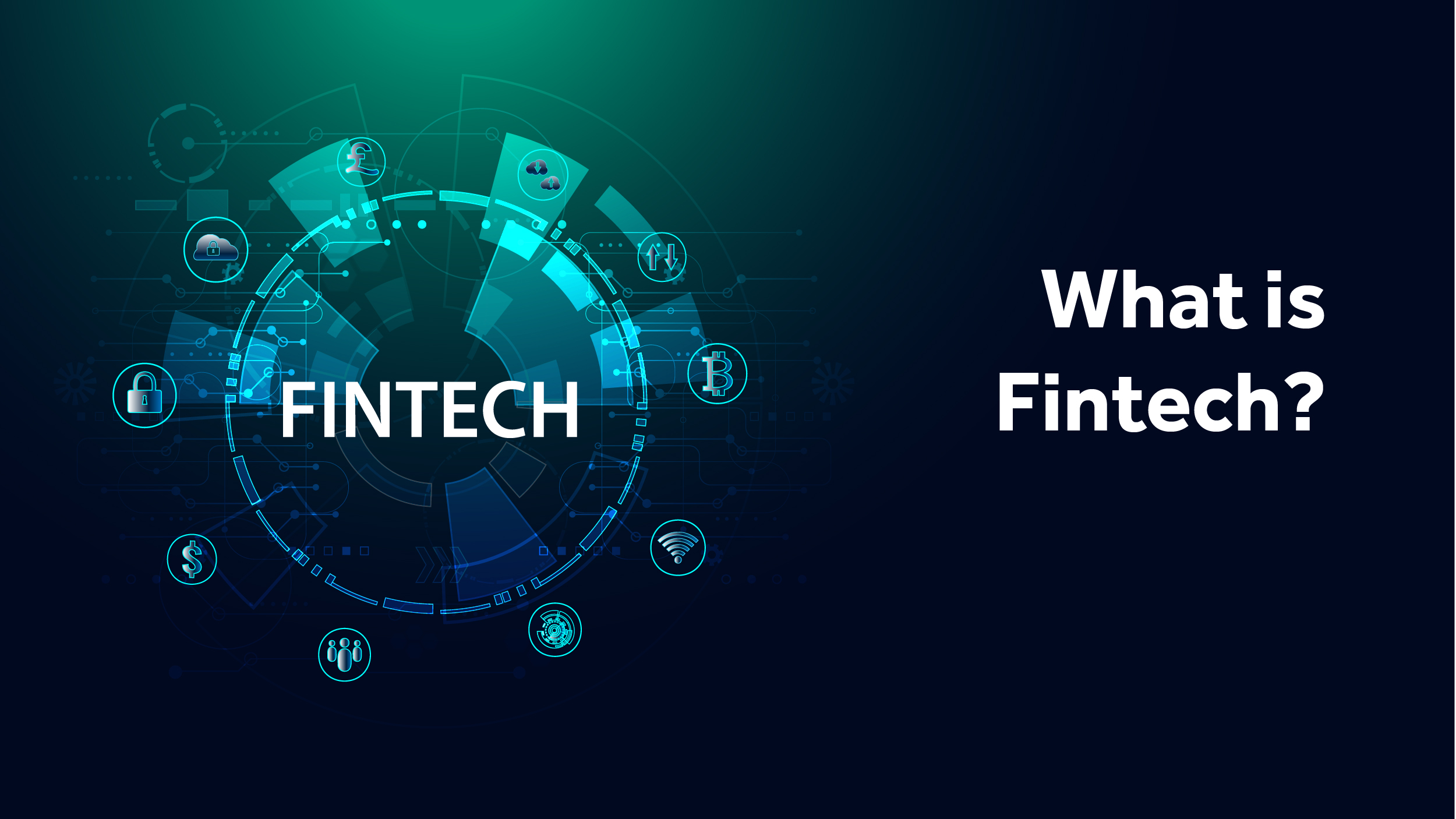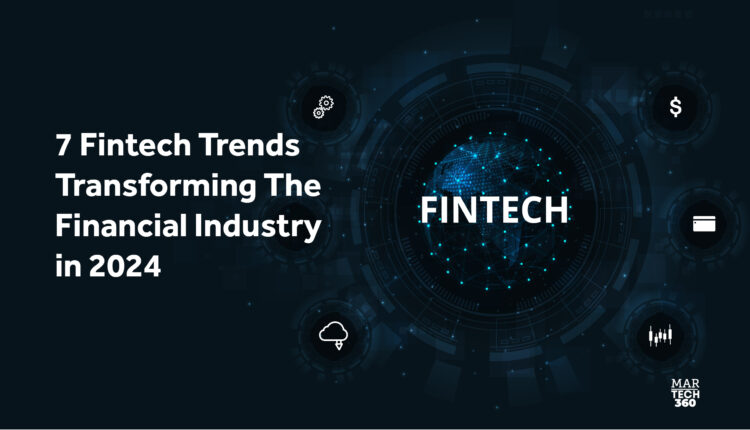Have you ever wondered what the future holds for the world of finance and technology? As we stand on the brink of 2024, the fintech landscape is poised for yet another wave of groundbreaking transformations. In this era of rapid technological advancement, it’s essential to anticipate the fintech trends in 2024 that will shape the financial industry in the near future.
From innovative payment solutions to cutting-edge advancements in artificial intelligence, the stage is set for a remarkable evolution in the fintech realm. Let’s dig in!
What is Fintech?
 The term “fintech” combines the terms “finance” and “technology.” Despite being a general phrase with a variety of meanings, it generally refers to the development of an industry when new technology use cases are created and implemented to streamline more conventional-looking finance activities.
The term “fintech” combines the terms “finance” and “technology.” Despite being a general phrase with a variety of meanings, it generally refers to the development of an industry when new technology use cases are created and implemented to streamline more conventional-looking finance activities.
Although the general public frequently identifies “fintech” with extremely innovative new ideas like algorithmic trading and blockchain, the term actually refers to a very wide range of considerably more “boring” applications. They include routine banking, insurance, and other back-office risk management tasks without being confined to those.
Top 7 Fintech Trends in 2024
 Listed below are the top 7 technologies that have contributed to the shift from the traditional banking system to a more tech-driven financial system. Let’s take a look at the main fintech trends in 2024 that every company should know.
Listed below are the top 7 technologies that have contributed to the shift from the traditional banking system to a more tech-driven financial system. Let’s take a look at the main fintech trends in 2024 that every company should know.
1. Artificial Intelligence (AI) and Machine Learning (ML) technologies
Before the pandemic, the adoption of AI and ML technologies in the financial industry was slow. But today considering the tough times we are in, the digital transformation of the fintech industry is now important more than ever. Modernizing banking systems without disrupting the existing system is extremely important and also a major challenge. This is where the pivotal role of AI and ML technologies comes into play, paving the way for fintech trends in 2024 by addressing the need for seamless evolution within the industry.
AI and ML have majorly helped in making digital transformations hassle and risk-free. By implementing AI/ML technologies financial institutions can reduce costs by increasing productivity. Artificial Intelligence and Machine Learning algorithms can spot anomalies and fraudulent information instantly and help achieve improved customer experience.
2. Intelligent Automation
In the realm of fintech trends in 2024, intelligent automation emerges as a pivotal force offering financial services the chance to elevate speed, efficiency, and accuracy. It transforms core finance processes through standardization and simplification. Finance-specific utilities tailored for automation deployment are crucial. Recognized by industry leaders, Deloitte reports a potential 20-25% productivity boost within a year through the synergy of organizational excellence, intelligent automation, and robotics. Proper implementation improves the speed, accuracy, and quality of services, particularly in vital processes like invoicing and reconciliation.
3. Robotic Process Automation (RPA)
In the realm of fintech trends in 2024, robotic process automation technology emerged as a game-changer, accelerating procedures by automating manual interventions. RPA uses software robots (bots) to free up human resources and allows automation of the manual repetitive and mundane tasks. Robotic Process Automation is not dependent on APIs, it notes the user’s actions in a graphical user interface (GUI) to repeat those actions on the same platform. It enables greater work efficiency with minimal investment.
For financial institutions, RPA is already in use across middle and back-office activities, automating financial processes and accounting reconciliation. Process automation for payables and receivables, fund appropriation at shared finance and accounting service centers, work hour modification and review, automation of financial recording, reporting, and treasury processes, as well as period-end accounting and settlement, are all areas where RPA is being used.
Automating manual tasks lowers human error, increases productivity, and enables firms to adjust to demand variations. Although RPA is currently well-established among major financial firms, we anticipate that it will spread more widely throughout the sector. For instance, account payable procedures could be automated to the extent of 60% by deploying robots that mimic human decision-making and fundamental paperwork tasks.
4. Blockchain technology
The world of finance is undergoing a revolutionary transformation with blockchain technology, a key player in the fintech trends in 2024. The growing acceptance of blockchain to help create a secure digital ledger is unavoidable. Today, it is the most significant financial innovation for digital transactions. Blockchain technology has a distributed management system. It cannot be controlled by a specific individual, government, company, or bank. However, there are still some security issues of this cutting-edge fintech that need to be worked upon.
5. Emerging Payment Technologies
Emerging payment methods are on the rise, with around 160 million Americans using peer-to-peer (P2P) bank transfers in 2023. Additionally, the Federal Reserve plans to launch FedNow, an instant pay-by-bank payment system, alongside the Real-Time Payments (RTP) network in the same year, offering consumers more options for real-time bank-to-bank transactions.
6. Cloud Computing and Big Data Analytics
Cloud computing and big data analytics are the next big thing in fintech trends in 2024. These technologies help in reaching remote markets and audiences. It is a complete transformation. The financial services industry has to deal with tons of data. Implementation of cloud computing in finance has numerous benefits such as assessment of information, efficient storage, and data management.
Cloud computing allows efficient storage of large data sets which results in better data analysis. As the banking and financial sectors further develop and progress with the adoption of mobile technologies and IoT, the need to shift to cloud computing and big data analytics technologies will increase.
Financial institutions are going to keep relying on the cloud as they implement more agile capabilities and introduce new ventures that call for high market and customer responsiveness as well as flexible scalability. The demand for cloud-based elastic computing, which enables computer resources to be dynamically modified to meet shifts in demand, will increase as a result of the at-scale deployment of big data analytics.
Banks will also see the potential for adopting cloud-based microservice architecture at scale in the coming years, where application programming interfaces (APIs) open up machine-to-machine communication and allow services to scale independently without having to increase the overall offering’s coding base. The forthcoming generations of core banking applications will lead to a change in banking architecture that is driven by microservices.
7. Rise of NEO Banking
In the landscape of fintech trends in 2024 and beyond, the concept of digital banking transcends mere paperless or cashless transactions. The financial services industry is moving toward the next stage of evolution and we are about to witness the rise of digital banking. The first stage of evolution involved a rise in digital payments and online infrastructures. However, the second stage is not just about going online, at this stage, we will see the emergence of virtual banks. This is where the rise of the Neobank begins. Neobanks are like financial institutions that can potentially give customers a cheaper alternative to traditional banks.
Final Thoughts
The dynamic landscape of the financial technology sector continues to evolve, presenting a myriad of opportunities and challenges. The aforementioned fintech trends showcase the industry’s relentless innovation, with a surge in digital payments, blockchain adoption, and artificial intelligence reshaping the financial landscape. As we navigate through these transformative times, staying abreast of the latest fintech industry trends is crucial for businesses and individuals alike. Embracing these trends in fintech empowers us to not only adapt to the changing financial landscape but also thrive in an era defined by unprecedented technological advancements. Stay informed, stay agile, and ride the wave of fintech trends shaping the future of finance.


Comments are closed.